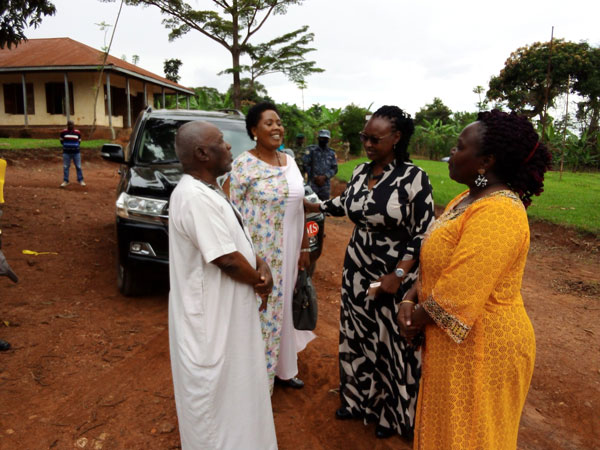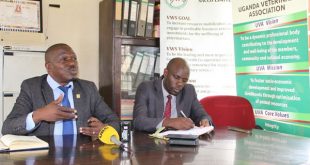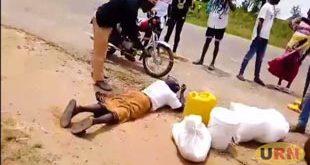
Luwero, Uganda | THE INDEPENDENT | With the Heroes’ Day celebrations in Luwero district due today, local leaders have asked President Yoweri Museveni to fulfill the pending pledges he made to the area that ushered him into power. Luwero and Nakaseke were significant battlegrounds during the 1981-1986 war, where numerous National Resistance Army heroes lost their lives.
The Heroes’ Day celebrations will take place at Kasaala playground in Butuntumula sub-county, Luwero district under the theme “Arise Uganda: Our Heroes’ Sacrifices Now Bear Fruits.” President, Museveni is expected to preside over the celebrations as chief guest.
Local leaders and residents in Luwero district are urging President Museveni to use the occasion to restore trust by announcing when his promises to the area will be fulfilled.
Erastus Kibirango, the Luwero district LC V chairperson, expressed disappointment that apart from limited rehabilitation packages, the region has been neglected in terms of infrastructure development. Kibirango highlighted Museveni’s unfulfilled promises to upgrade the Wobulenzi-Zirobwe-Kabimbiri road and provide support for the construction of a district headquarters, hospital, and pineapple factory, among other commitments.
Despite the district’s efforts to commence the construction of the hospital and district headquarters, insufficient funding has caused significant delays. Kibirango eagerly awaits Museveni’s announcement of a fresh reconstruction package that prioritizes infrastructure development in recognition of fallen heroes’ sacrifices and the area’s contributions to his rise to power.
Ronald Ndawula, the NRM Chairperson for Luwero district, emphasized the need for a central museum to house the skulls of fallen heroes that were collected and buried in mass graves. He suggested that such a museum would serve as a valuable tourist attraction and educational resource.
Denes Sekabira, the Katikamu North Member of Parliament, highlighted the lack of municipality status for any town council in Luwero district, while numerous other regions across the country have been elevated to this status.
The four Members of Parliament representing Luwero district have already announced their decision not to attend the Heroes’ Day function, citing Museveni’s abandonment of the area after the war and the belief that the event may not bring about any tangible change.
Additionally, some individuals criticized Museveni for the delayed compensation of veterans and bereaved families of fallen heroes, even after 37 years since the war. Richard Bwabye, the Luwero Resident District Commissioner, stated that during the Heroes’ Day celebrations, President Museveni will commission road works for the upgrade of the Luwero-Butalangu road, demonstrating his commitment to fulfilling his pledges.
Bwabye added that Museveni has instructed the Luwero-Triangle ministry to locate land and construct a war monument to house the skulls of fallen heroes, as requested by local leaders. Furthermore, the government has allocated funds to compensate all veterans in the Greater Luwero district, and the verification process has been completed to prevent fraudulent claims.
Recently, the State Minister in Charge of Luwero-Rwenzori Triangle, Alice Kaboyo, acknowledged that the special programs aimed at revitalizing districts in the triangle have not yet had the desired impact.
Kaboyo compared the progress in Luwero Triangle to other regions, such as Northern Uganda, Teso, and Karamoja, where special ministries were established later but have experienced greater development, despite Luwero’s significant role in bringing the government to power.
The last time Luwero hosted the Heroes’ Day function was in 2017 at St. Augustine Parish Grounds in Zirobwe sub county.
*****
URN
 The Independent Uganda: You get the Truth we Pay the Price
The Independent Uganda: You get the Truth we Pay the Price



Preamble
There is this large area of productive people comprising of a “Lukoola” and land for cultivation. It is traversed by a tarmac road, predominantly through the area for cultivation.
Problem statement
A vast area of sparsely populated nature seems to have been very vital in achieving national mile stone. However the counter forces had presence among the populated area
There is a grey area as to what happened among the cultivators while great achievements were taking place in the sparsely populated area
There is a need to get an independent review of the population dynamics and subsequent mitigation of harm inflicted
Hypothesis: the population that suffered harm is not effectively covered or recognised
Chairperson Luwero
It is true we have to recognise the heroes
May I remind you that there are also other human beings who lost their lives during that war
They happened to be present in the right place ( their homes)
It is our humble request that these people are remembered even if it is just a 30 second moment of silence
We do not need to burden the country, for unlike elsewhere, it has conspired to ignore their fate
They once lived among us and had an impact in our lives. They had dreams. Yes they were human beings ( Homo sapiens)
The Chairperson
Luwero District
I have read one of the online sources and taken note of “a service in memory of the Heroes and civilians who lost life during the war” It was organised by the minister Luwero ” affairs”
“It is the first time such an event takes plsce
I also took note of comments from the minister, ” there is a lot that can be done at Individual level, to help the area before government comes in”
That is my point of concern::
There is history of the political affiliation of the community in 1980
It is also a fact that these were hard working people as evidenced by presence of a vibrant Cooperative Society, with Coffee and Cotton and vegetable growing. There was a ,milk Cooler Plant at Katikamu
The extension workers in the agricultural field were very busy and so were the officials for community development
When the war ended we returned home and found a sorry state of affairs:
1. We could not trace many people
2. Family men were putting on Kabuuti in the hot month of August!
3. Banana trees had covered compounds
4. Stories of the life people led, the stay in Lukoola ( we were cultivators), the trip to Ssingo, residence in camps.
Complemented by events of death ( how and when) of many people we knew
Since then we have not seen programmes that define and cover the plight of the entire community
Instead
1. Certain individuals are identified to benefit ( I made sure my deceased parent ķept away from this injustice yet she had been identified to benefit!)
2. Individual sympathisers pffer to cover certain populations, with time bound mitigation
The last time I visited the district head quarter, I compared it to many that I have been to in this country: well it summarises the plight of that district
The question
1 if that region is part of the country, how come the efforts to rehabilitate it are not handled in the same way as other district ( the ordinary citizen in that area had no say in what happened to him during the war and after the war)?
2. If one ( who did not take an active part in what happened) has to sue to be compensated; but they are incapacitated by the status quo; how do they seek justice?
3. The area has been occupied by new people who squew the plight of those affected by the war; has any one come out to document the fate of the individuals who inhabited that land between 1980 and 1986?
4. Has any one documented the activities of the experiment that took place in tha areas that are never mentioned ( let some one stand up to be counted and outline the achievements of the Tactical Head quarter in relation to the civilian population)?
We cannot heal from that war, when the plight of the civilian population is ignored ( the grass that was trampled on during the fighting by two big elephants)
The justice system in this country is being tested
Those who talk about human rights
The smallest favour you can do is to document our plight
Wishes of an old woman who knows that region since 1965
It should read
This Skews the data
The wretched of the earth have their plight masked by what is seen
In any case those who managed to escape came to Kampala as a miserable lot
What happened to them?
What is the quality of life that they have endured
The ” blowing wind represents them”